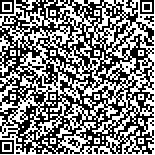| 摘要: |
| 于2000年2月以中国科学院海洋研究所水族楼暂养的中国对虾为材料,采用常规方法从尾部肌肉中提取DNA,构建小片段部分基因组文库。采用人工设计合成的(CT) 7、(AT) 7重复片段作引物,利用PCR法对中国对虾小片段部分基因组文库进行筛选。本实验首次在中国对虾中获得31个微卫星序列,分别分布于18个阳性重组克隆中,其中perfect共23个,占74%,imperfect2个,占7%,compound perfect 1个,占3%,compound imperfect5个,占16%。结果还表明,在中国对虾基因组DNA中,(CT) n、(AT) n形式的微卫星序列的含量非常丰富。 |
| 关键词: 中国对虾 微卫星 筛选 |
| DOI: |
| 分类号: |
| 基金项目:国家重点基础研究发展计划项目资助,G1999012007号;国家自然科学基金资助项目,39970113号 |
附件 |
|
| ISOLATING MICROSATELLITE DNA OF CHINESE SHRIMP PENAEUS CHINENSIS |
|
XU Peng, ZHOU Ling Hua, XIANG Jian Hai
|
|
Institute of Oceanology,The Chinese Academy of Sciences,Qingdao,266071
|
| Abstract: |
| Thirty-one microsatellites of the Chinese shrimp Penaeus chinensis were obtained through PCR screening small size fractionated libraries of P. chinensis with simple tandem repeats primers (AT) n and (CT) n. The bacterial suspensions were used in PCR. A high temperature of 95°C was used for breaking the bacteria. After screening, recombinant positive clones containing microsatellites were sequenced. Among the 31 microsatellites in 18 positive recombinant positive clones are 23 perfect ones (74%), 2 imperfect (7%), 1 compound perfect (3%), and 5 compound imperfect (16%). The experiment shows that microsatellite sequences characterized by (AT) n and (CT) n abundant in genomic DNA of Chinese shrimp. Primers can be designed according to these microsatellite franking sequences and used in genetic analysis. |
| Key words: Penaeus chinensis, Microsatellite, Screening |
